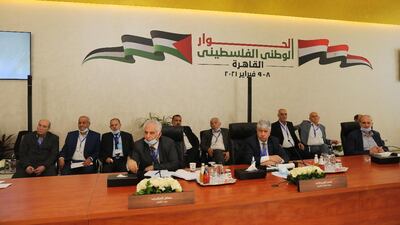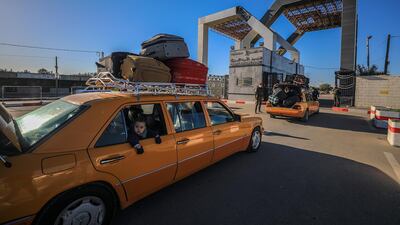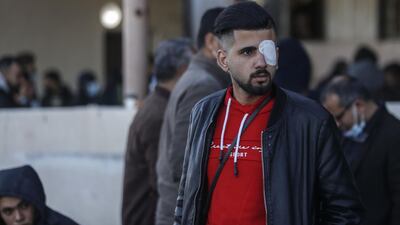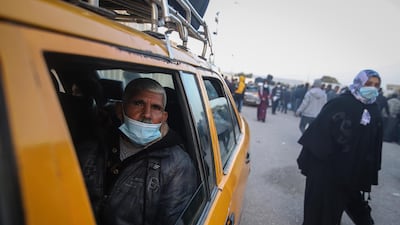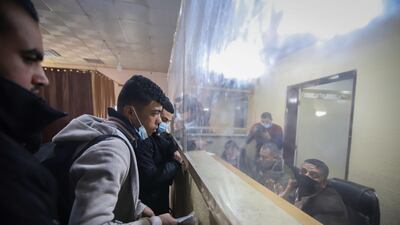Rival Palestinian factions reported progress in resolving their rift by agreeing on mechanisms for upcoming elections and pledging to respect their outcome after years of division.
Fatah and Hamas are committed this year to hold the first elections in 15 years, according to a joint statement on Tuesday.
It came after two days of Egypt-brokered talks in Cairo.
The deal provides for an "electoral court" with exclusive jurisdiction over the electoral process and any cases arising from the elections.
On January 15, Palestinian leader Mahmoud Abbas issued a decree to hold legislative elections on May 22, followed by presidential elections on July 31.
Hamas and Fatah have been bitter rivals since 2007, when Hamas violently seized control of the Gaza Strip from Mr Abbas's forces.
That conflict came after the militant Hamas group won a landslide victory in parliamentary elections.
Since then, the rule of the Palestinian Authority led by Mr Abbas has been confined to parts of the Israeli-occupied West Bank while Hamas holds sway uncontested over Gaza.
The Palestinian Legislative Council has not met since. Numerous attempts at reconciliation failed to close the rift.
During the coming elections, Palestinian police in the West Bank and Gaza would guard polling centres, the statement said.
The two sides also agreed to release political prisoners and ensure freedom of expression during the campaign.
Security agencies will not be allowed to interfere in the campaigning or voting process.
In a telephone conversation on Tuesday evening, Hamas leader Ismail Haniyeh thanked Mr Abbas for supporting the Cairo talks, saying he hoped for the "success of the elections and the end of the division" between the Palestinian factions, according to the official Wafa news agency.
In the statement, the factions said polling "must take place in Jerusalem, the West Bank and Gaza, without exception". Voting in East Jerusalem was blocked by Israel at previous attempts to hold an election.
The armed Palestinian group Islamic Jihad, which has some support in Gaza and the West Bank, welcomed the deal but said it would not take part in the elections.
Egypt has, in the past, mediated reconciliation agreements between Hamas and Fatah, only for deals to unravel soon afterwards.
On Tuesday, Egypt opened its border crossing with Gaza indefinitely in what appeared to be a timely gesture of goodwill towards Hamas, whose relations with Cairo are often be fraught with tension.
The crossing at Rafah is Gaza’s only gateway to the outside world not controlled by Israel, which has for years blockaded the Gaza Strip to prevent the entry of weapons into the coastal territory.
Egypt closed the crossing for long periods over the past decade and moved to shut down a network of underground tunnels used by Palestinians to smuggle a wide range of goods.
Registration for the election is also open in Palestinian territories with electoral commission teams on Wednesday out on the streets to get people signed up.
“We urge the youths, who at 60 per cent make the mainstay of the electoral register, as well as the women, who account for half, to take this matter seriously because it has a deadline and after that, it will not open again for registration,” said Mohammed Abu El Khair, an official from the Central Elections Commission in Gaza.
“I want to see a change here in terms of economy, unemployment and many things like [border] crossing points,” said Mohammed Al Jawabra, 34, who sells coffee and tea from a sidewalk cart.
"I'm sorry to say that there are youths who can't work at this time and graduates could not be hired," he said, as the ECE team member updated his information on a tablet. – Additional reporting by agencies
